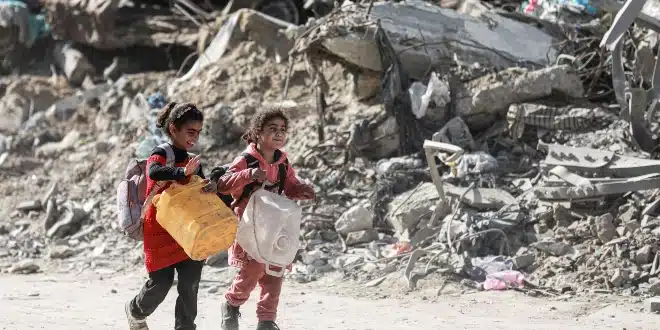A senior Hamas official publicly criticized U.S. special envoy Steve Witkoff on Friday, accusing him of misrepresenting the facts surrounding the stalled Gaza truce negotiations. The backlash followed Washington’s decision to step away from the indirect talks, blaming Hamas for halting progress on a potential ceasefire and hostage agreement.
Hamas Pushes Back on U.S. Claims
Bassem Naim, a member of Hamas’ political bureau, challenged Witkoff’s remarks, calling them misleading and out of sync with the atmosphere of recent negotiations. In an interview with AFP, Naim stated that the envoy’s assertions “completely contradict the reality of how the talks unfolded” and alleged that Witkoff was intentionally aligning with Israel’s narrative rather than offering an objective assessment of the situation.
Naim emphasized that Witkoff had firsthand knowledge of the true context of the discussions and suggested that the U.S. envoy’s statements were crafted to bolster Israel’s stance in the ongoing conflict rather than reflect any breakdown in Hamas’ willingness to negotiate.
Breakdown in Ceasefire Negotiations
Tensions have escalated in recent days after both the United States and Israel withdrew from the indirect negotiations with Hamas, citing a lack of cooperation from the militant group. U.S. officials, including Witkoff, accused Hamas of obstructing a deal that could lead to the release of Israeli hostages and a halt in hostilities.
The negotiations had aimed to secure a truce in Gaza, where Israeli military operations and Hamas rocket fire have continued to exact a heavy toll. The absence of a resolution has left many hostages still in captivity and civilians in both Gaza and Israel exposed to ongoing violence.
Broader Diplomatic Fallout
The dispute over the negotiations comes amid broader international concerns over the humanitarian situation in Gaza and the growing pressure on regional powers to mediate a lasting ceasefire. Washington’s decision to step back from the talks marks a shift in tone, indicating frustration with what U.S. officials see as Hamas’ unwillingness to engage in a final deal.
However, Hamas continues to claim that its negotiating stance has been mischaracterized and insists it remains open to dialogue—provided it is grounded in fair terms and not dominated by Israeli or U.S. pressure tactics.
As the deadlock deepens, efforts to revive meaningful negotiations will likely hinge on restoring trust between all parties and re-establishing a framework that acknowledges the complex political and humanitarian realities on the ground.


